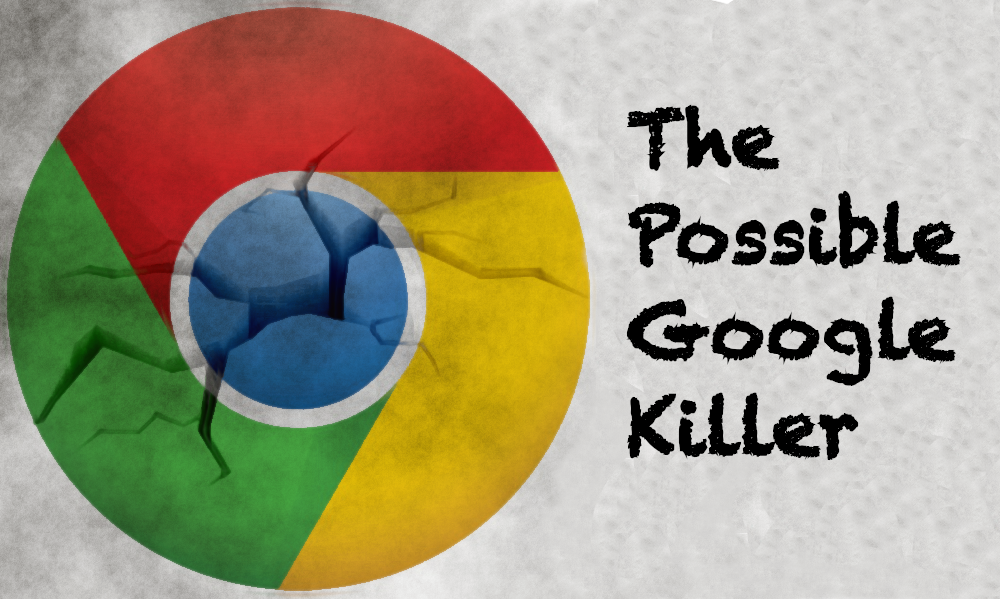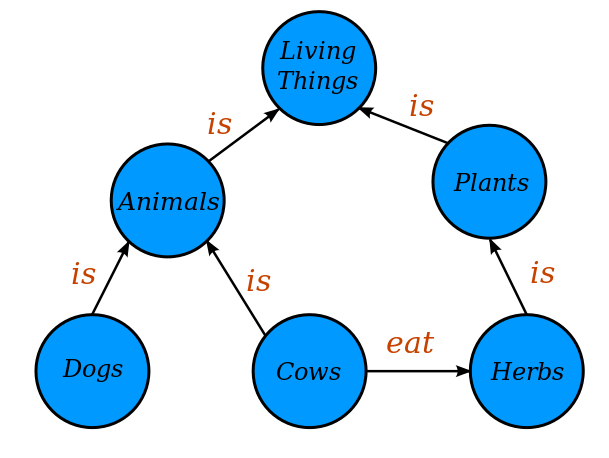The Possible Google Killer
It's unthinkable that anything or anyone could dethrone Google as the King of the Internet. I found a company that possibly could.
Larry Page was a PhD candidate in Computer Science at Stanford University. On January 9, 1998, he applied for a patent that was assigned to the university, titled “Method For Node Ranking In A Linked Database”. Together with another patent filed by Google co-founder Sergey Brin, became the basis for Google, the king of the Internet. Stanford took shares of Google for a perpetual license and sold them in 2005 for $300 million. They would be worth over a billion dollars today. Google has continued its position of prominence in the internet field by pushing the boundaries of various technologies.
The kernel of what became the search engine that could, was based on an obscure field of mathematics used by Chinese mathematicians over two thousand years ago. The exact formula for Google’s secret sauce was at least 100 years old. What Page & Brin did, was to apply what is known as a “stationary distribution” to a matrix describing connections on the world wide web. This would allow them to “Page Rank” (the given name of the process and a play on Larry Page’s name) and to quickly and accurately identify the most popular websites after they had been indexed by a crawler. It allowed more accurate search results with less computation, beating the pants off Alta Vista which was the reigning search engine king of the era.
Google began the go-to question answerer of the Internet. They have indexed the entire world wide web and knows almost exactly, as if by magic what you are asking about — even with malformed questions. They are indeed a search juggernaut, and by extension, an advertisement juggernaut that is apparently unbeatable. They have killed rivals like Ask Jeeves, Aliweb, Linkstar, Webstar, Yahoo, Magellan, Lycos, Hotbot and others. Their power lies in the network effect. The more users they have, the more that they become unbeatable for rivals to overtake or knock off. To beat Google, or any entrenched leader in the field, one has to disrupt the field. You can’t beat them with their own or similar weapons. You have to have something that is so much more awesome and powerful. Otherwise, you cannot easily compete and overcome the first movers in the field. History is littered with companies that were disrupted and then died from the disruption.
Using Google is like magic. As soon as you start to type, it starts guessing what you will ask and even if it is wrong for the first couple of letters, it will eventually “guess” the correct question and provide websites with the right answers. It is almost like a mind-reading artificial intelligence. In fact, it is a very fast lookup table based on millions upon millions of queries that it has seen before.
So what will knock off Google? What can possibly kill something that is so integral to our lives? We use Google to not only look at pictures of cats, but get recipes for our daily meals and give a medical opinion on some strange symptoms that we are experiencing. For most people, a visit to Dr. Google precedes a visit to their personal physician.
If you have seen my LinkedIn posts, you will know that I use webscrapers and the Natural Language Processing part of Artificial Intelligence to automagically process the news regularly. I started this because of FOMO (Fear of Missing Out) of something that I should know about, but then I came to the realization that I could use this methodology to use for investing in stocks. (It has worked out very well thank you, even in these difficult times of Russia being at war with Ukraine). However the most valuable use of these tools of mine, are for identifying emergent trends that may get legs and change the world.
And so, I think that I may have found a company that has the potential to grow and kill off Google. First of all, lets get an appreciation of what Google does on an abstract level. In our society, we have developed learning methods where we collect data. We integrate that data in facts. We further integrate and combine facts to synthesize knowledge. It’s a three step process FACTS »» <combined together make> »» INFORMATION »» <combine together create new> »» KNOWLEDGE.
Google serves up facts. It answers questions. It is declarative in the way that it answers questions. However, once your question has an answer, it is the end of the line as far as really knowing and/or understanding the context of the answer. That is where a knowledge graph comes in. To quote ontotext.dot.com: “The heart of the knowledge graph is a knowledge model: a collection of interlinked descriptions of concepts, entities, relationships and events. Knowledge graphs put data in context via linking and semantic metadata and this way provide a framework for data integration, unification, analytics and sharing”. This simple example is from the Wikipedia page By Jayarathina:
In other words, by seeing a knowledge graph you can infer knowledge by its connection to intermediate nodes in the graph. A knowledge graph consists of nodes (the blue circles above) and the edges (the arrows that connect them and define the relationship. It is a powerful way to see and transmit knowledge.
So, my webcrawlers came upon a site called diffbot.com. The headline is “AI That Learns Facts”. They further state: “Our mission is to build the world’s first complete map of human knowledge and provides the world’s largest searchable knowledge graph”. This would give power to searches that Google doesn’t currently have.
This blew me away. They further state that “We’re one of three western entities to crawl the entire web and our building out infrastructure related to web data extraction/APIs, distributed systems, highly scalable systems and machine learning.”
Forbes write that this startup is getting in on Google’s game by searching a trillion facts. They are providing Knowledge as a Service. Their big value proposition, is that Google will show you anything on the web, even if the content isn’t true or accurate. Diffbot aims to show knowledge that is accurate and true. It is a real game changer. The CEO is Mike Tung, another Stanford University alumnus who has a Masters Degree in AI and an Electrical Engineering degree University of California, Berkeley.
Even though I posit that they may become a Google killer, Google has a way of mitigating that possibility. They just swallow them up, and Diffbot becomes Google. In a way, I hope that it doesn’t happen. Sometimes, something has to die so that its successor can do a better job.
It will be something like Diffbot that will relegate the alternate facts folks to their little dark corners of the web where only the stupid, ignorant, unenlightened or predators will linger. I hope so.




